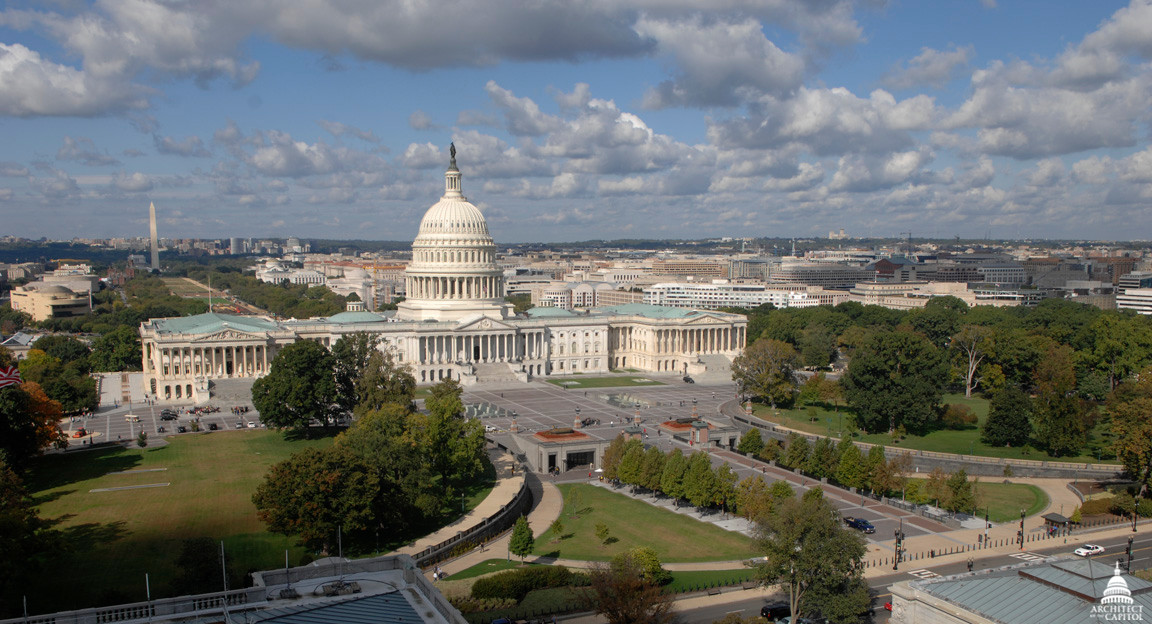Senate Commerce OKs Bill Exploring Making Big Tech Fund Broadband
FAIR Act makes it out of committee on bipartisan vote

The smarter way to stay on top of the multichannel video marketplace. Sign up below.
You are now subscribed
Your newsletter sign-up was successful
The Senate appears to be getting serious about making edge providers including streamers and search engines pay into the Universal Service Fund. The USF subsidizes advanced telecommunications — essentially broadband — to low-income and hard-to-reach areas of the country.
Currently, the fund is paid into by telecom providers, but with the move from traditional phones to broadband as the connectivity of choice, the sustainability of the subsidy program is at issue.
The Senate Commerce Committee on Wednesday (May 11) approved S. 2427, the Funding Affordable Internet with Reliable Contributions (FAIR Contributions) Act, which now heads to the Senate floor.
Edge providers still have plenty of time and opportunity to lobby against the move since the bill only requires the Federal Communications Commission to study the feasibility “and effects” — the additional language was added as an amendment — of making edge providers pay into the fund.
Streaming content providers are telling the FCC it would be unwise and unworkable for Congress to expand the broadband subsidy base to include over-the-top video and others in the vague “Big Tech” basket and essentially impossible for the FCC to administer.
Also: OTT tells FCC That USF Streaming Fee Would Be Impossible to Administer
Committee ranking member Roger Wicker (R-Miss.), who authored the bill, said it was about the sustainability of the fund and that it would require Big Tech, as well as broadband providers and other users, to be added to the base of those having to pay into the fund. If past is prologue, that cost will be passed along to customers.
The smarter way to stay on top of the multichannel video marketplace. Sign up below.
Wicker said expanding the base would ensure support for rural broadband "for years to come" and lower consumer bills. "These companies have benefited from the connectivity the USF supports but have not yet had to contribute," he said.
Also approved was a related bill, the 3692 Network Equipment Transparency (NET) Act, which requires the FCC to “evaluate and consider the impact of the telecommunications network equipment supply chain on the deployment of universal service." The FCC is specifically asked, to the extent there is relevant data, to "determine whether a lack of network equipment significantly impacted the deployment of advanced telecommunications capability during the applicable year.”
Bill backer Sen. John Hickenlooper (D-Colo.) said that closing the digital divide is a bipartisan goal and that a resilient supply chain is a key to achieving that “federally funded goal.” He said companies in his home state of Colorado were complaining about delays in getting batteries, antennas and fiber-optic cable, all crucial to broadband buildouts.
Hickenlooper said the bill will charge the FCC with monitoring and reporting any supply chain delays to Congress. ■
Contributing editor John Eggerton has been an editor and/or writer on media regulation, legislation and policy for over four decades, including covering the FCC, FTC, Congress, the major media trade associations, and the federal courts. In addition to Multichannel News and Broadcasting + Cable, his work has appeared in Radio World, TV Technology, TV Fax, This Week in Consumer Electronics, Variety and the Encyclopedia Britannica.

